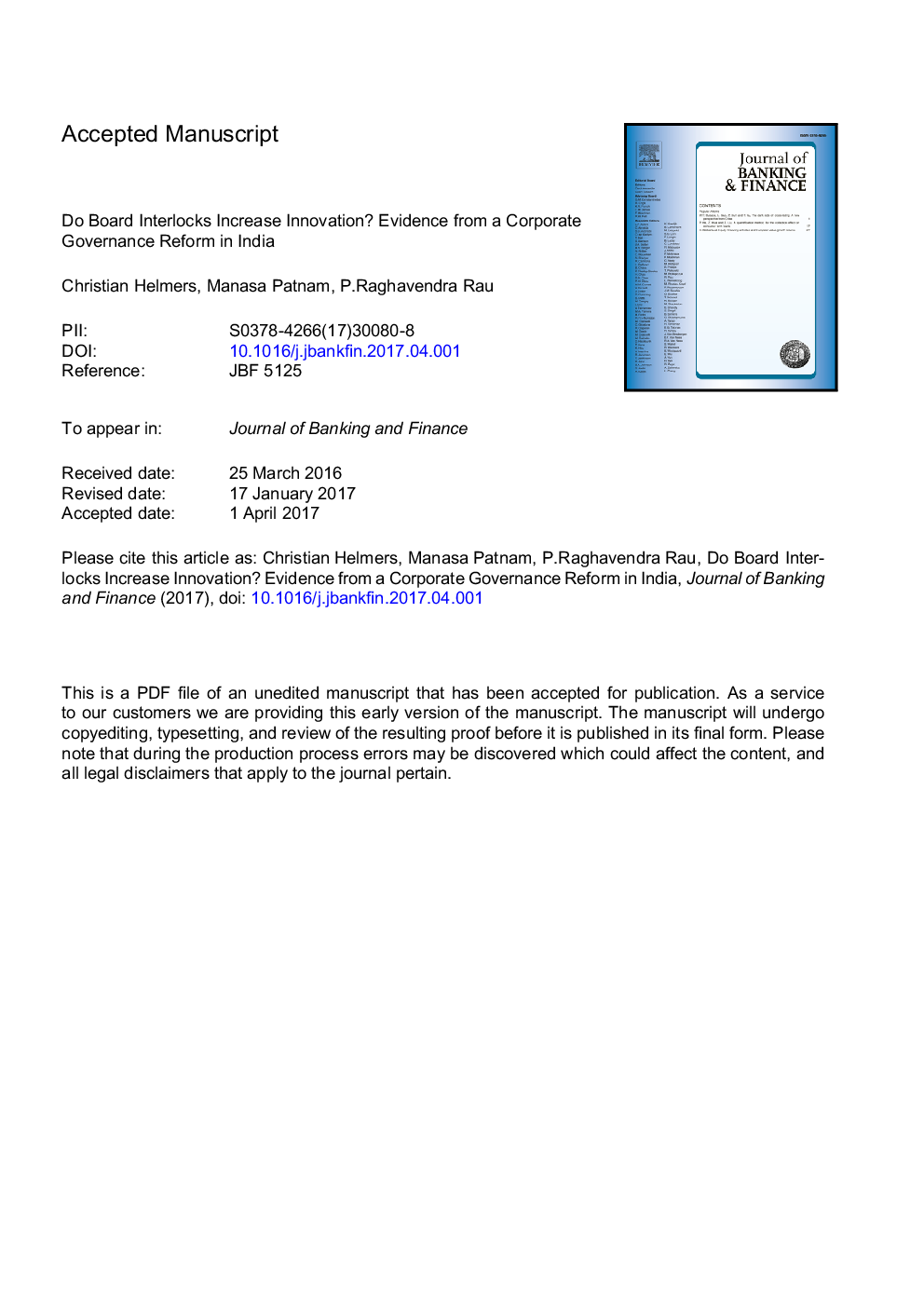| Article ID | Journal | Published Year | Pages | File Type |
|---|---|---|---|---|
| 5088092 | Journal of Banking & Finance | 2017 | 58 Pages |
Abstract
We examine the effect of board interlocks on patenting and R&D spending for publicly traded companies in India. We exploit a corporate governance reform to address the endogeneity of board interlocks through exogenous changes mandated by the reform requiring a subset of firms to adjust their board structure. We rely on two difference-in-differences frameworks, comparing firms affected by the reform to unaffected firms as well as comparing within the set of firms that did not have to adjust their board structure those that still experienced an exogenous increase of their network size as a result of the reform to those that did not experience a change in their network size. We find that board interlocks have significant positive effects on both R&D and patenting. The evidence suggests that the impact on R&D is induced by information transmission through interlocks. The effect on patenting is driven by firms extending patent protection by patenting inventions abroad that they have already patented in India.
Related Topics
Social Sciences and Humanities
Economics, Econometrics and Finance
Economics and Econometrics
Authors
Christian Helmers, Manasa Patnam, P. Raghavendra Rau,
